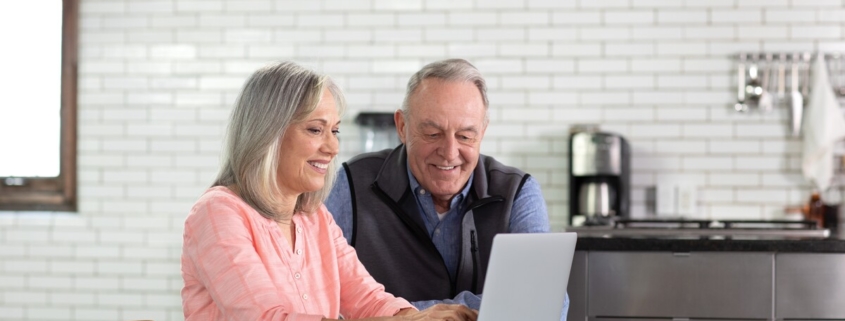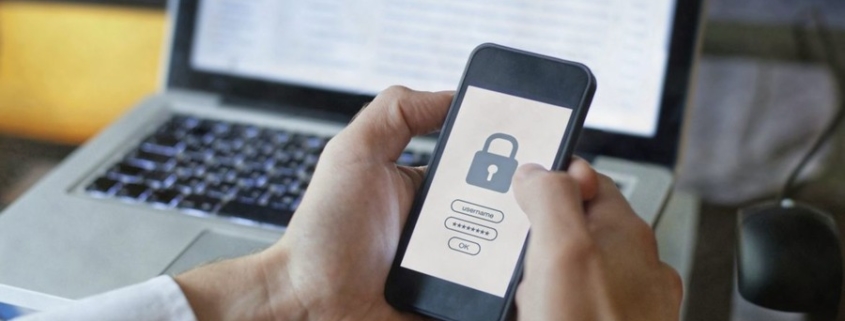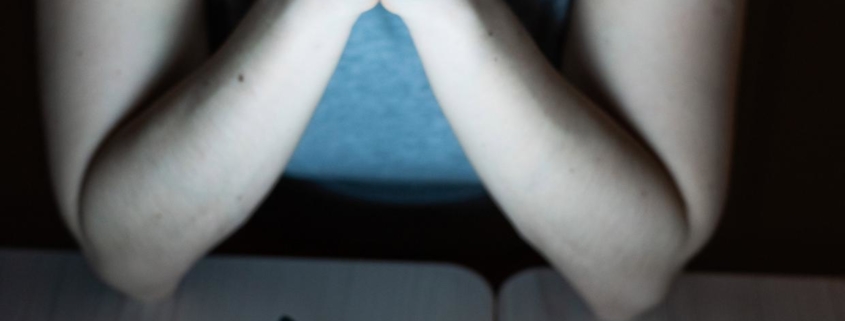Tag Archive for: safer
Safer surfing for seniors: Protect your privacy with these internet safety tips
/in Internet Security
Sixty-three percent of Cox customers ages 57 and older — baby boomers and the Silent Generation — say they worry about online security and privacy.
To help protect yourself from fraud, hacking and scams, here are some tips to keep you and your personal information safe while surfing the web.
Strengthen passwords
According to recent research from Forrester, about one-third of Baby Boomers and the Silent Generation use two-factor authentication to confirm their identify when logging into their accounts. And just over half use password or PIN code protection for their smartphones.
Strong passwords should contain:
- At least seven characters
- Numbers
- A special character like an exclamation point or asterisk
Don’t use the same password for different sites. A hacker can gain access to all your accounts if you only use one password. On your smartphone, be sure to set up a four- or six-digit PIN to protect your device.
Consider using two-factor authentication when creating accounts online, which generates a one-time code sent to your mobile device or email to confirm your identity. (AARP)
Two-factor authentication adds another step and a little more time to confirm your identify when signing in to your accounts, but you would spend a lot more time and energy if you had to recover from a data breach.
Opt out of pop-ups
Sometimes hackers disguise their malware as pop-up advertisements or “special offers” when you’re shopping or reading online. Clicking on these pop-ups can lead to viruses or data breaches.
If you encounter a suspicious pop-up message, don’t click on anything in the window. Simply leave the site or close out of your web browser. You can also change your browser settings and block all pop-ups.
Phishing for answers
Sometimes online hackers will send you an email or text message and pretend to be someone they’re not in order to convince you to share valuable information with them, such as your social security number (SSN), address or credit card information. This is called phishing. (Age Safe America)
If you receive a message from an unknown sender, do not respond or click on any links or attachments. Instead, ignore the message or have someone trustworthy see if it’s from a…
Nuala McCann: I’m dusting off my chequebook and going retro – it’s safer that way
/in Internet Security
WHEN I turn on my new laptop, I feel like I’m clambering onto my horse in a big set of clunky silver armour about to joust with the black knight called t’internet security.
Yes, I am up for the challenge, yes, I have a password manager, but sometimes machine says no.
It tells me I need to go through three different levels of security, it laughs at me for not remembering the name of my first best friend – but was it the real or the imaginary one? – and it blocks me.
It’s like standing at the door of a very fancy private club and having a snooty gentleman in a frock coat look down his nose at you.
Damned if I’ll take it, but you have to.
“What’s your worry?” says my friend. “I keep all of my passwords in a little notebook in the drawer. That way there is no bother.”
Surely Burglar Bill will look there first, I tell her. That’s the 21st century equivalent of your granny keeping her cash stuffed in a cushion.
But I can see the temptation.
In my defence, I keep all my important stuff carefully locked away on my iPad.
I don’t write down my passwords – you never ever should – but as memory serves me not-so-well these days, I rehash my old ones and add a number up to 99.
It works, mostly. But the machine keeps nagging me to change the password.
“This password has appeared on zillions of leaked lists. Are you sure?” it asks.
And the endless appeals for new passwords drive me crazy.
Shouting: “I only have one mother, father, husband, son, date of birth…” has no effect.
So I use my thumb print.
“When I die,” I tell our boy who rolls his eyes on cue. He knows all the details including the willow coffin and the cremation.
When I die, I tell him, cut off my thumb.
He raises an eyebrow. He wasn’t planning on that.
It makes sense, really. If they up security to include iris recognition, he’ll have to pluck out my eye too.
My thumb is the key to opening my iPad and to the Aladdin’s Cave of all my worldly goods, such as they are.
My thumb is “Open Sesame” to the Premium Bonds.
I keep hoping.
My sister is a born optimist.
“Some day, Agent Million will be calling at my door,” she tells me with such certainty that I’m buying the…
Ten steps to a safer computer
/in Computer Security
The recent cyberattack on Ireland’s health system highlighted the importance of protecting your computers against criminals – and showed the damage and losses which can be incurred if you don’t.
ith so many of us still working from home – and with so much more computers and IT devices around the home than pre-Covid, it’s crucial that you ensure any devices in your home are secure so that you too don’t fall prey to cybercriminals. So how do you go about protecting yourself from cybercrime and do you need to spend money to do so?
Get a trusted brand
Use the anti-virus software of a reputable and trusted brand leader – whether it’s free or paid-for. Some of the main brand leaders include Avast, AVG, Eset, McAfee, Norton, Microsoft and Sophos.
Free anti-virus may be enough
Free anti-virus software may be all you need for your home computer or devices.
For example, Microsoft Windows 10 Security (better known as Microsoft Defender), which is free with Windows 10, has received positive reviews from a number of IT and consumer experts. It scans for malware (harmful software which will cause damage to – and try to extract personal and financial information from – your computer), viruses and security threats, with updates downloaded automatically to help keep your device safe. It also allows you to keep an eye on your…



